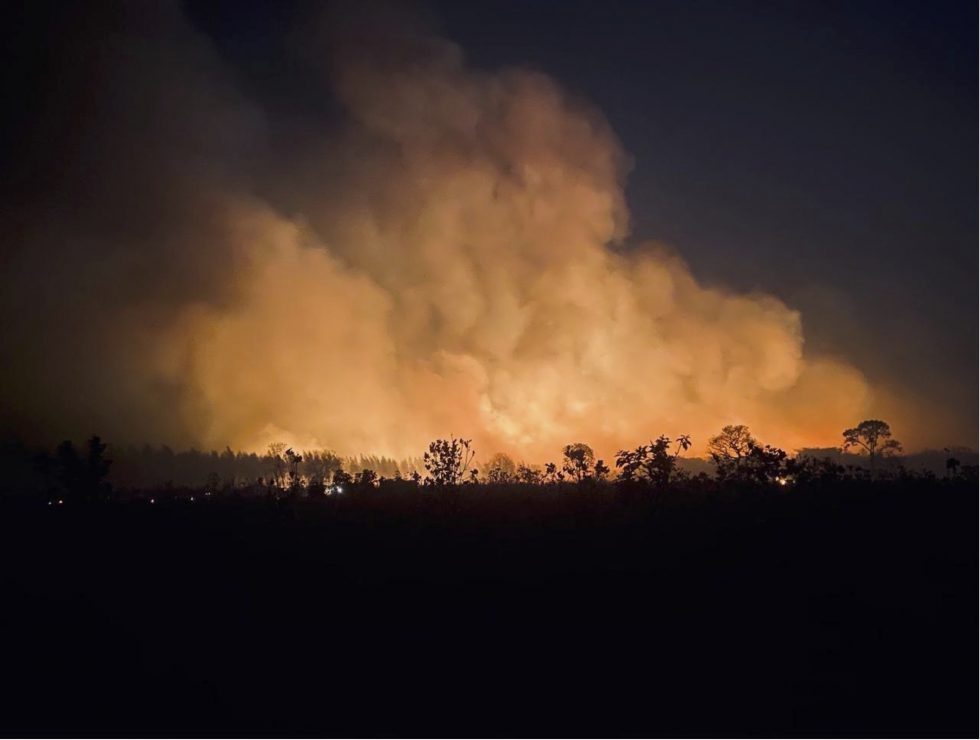Actualités
Pulp & paper industry expansion in Cerrado risks fires, water shortage and climate damage, says new EPN report

New research released today by the Environmental Paper Network reveals the impacts of the ongoing and massive expansion of the pulp & paper industry in Mato Grosso do Sul, in Brazil’s Cerrado biome.
Pulp production in the area around Três Lagoas, in the eastern corner of Mato Grosso do Sul,has exploded from zero to more than seven million tons per year within a decade. There are plans to double the production again in the coming years. Two large pulp mills are already operating and four more have been announced.
To feed the pulp mills, more than one million hectares of industrial eucalyptus plantations have been established locally. That is an area larger than Jamaica. The plantation area is projected to double in coming years, as the pulp mill production capacity grows.
The investigative report released today, Scorching the Earth, is the result of two years of field research in the Três Lagoas area. It documents how springs, ponds and streams disappeared at the same time as the eucalyptus plantations expanded. Forest fires have also become a frequent problem in the area, coinciding with the plantations reaching maturation.
The research also investigated the impacts on local communities, which are being progressively expelled from their own land. For those who find work in the industry, labor conditions are often poor and unsanitary. The pulp & paper industry is the subject of an exceptionally high number of cases of violations of labor rights legislation.
Sergio Baffoni of the Environmental Paper Network said, “While the conversion from pasture to plantations has been hailed as a recovery after past deforestation, this is not what’s happening. On the contrary, the paper industry is pushing the cattle ranching towards the available lands, to carve another piece of the Amazon and the Pantanal.”
“In the acquired land, the remaining stands of natural Cerrado are surgically eliminated, and the entire system supplying water to the continent is now at risk” added Baffoni.
Pulp and paper expansion is being fueled by a growing global pulp demand mostly driven by e-commerce and by an inefficient distribution system: more than half of the global paper products end up in packaging intended to be thrown away.
Suzano, the major global producer of market pulp, just applied with the International Finance Corporation (an arm of the World Bank) to obtain US$900 million funding for one of the mills being built in this region.
On Friday 9, forty Brazilian and international civil society organizations sent a joint letter to the IFC, urging them not to approve the loan at their board meeting, which is being held on December 15th.
“Public money should not be used to support a large corporation whose impacts on the ground are clearly negative” added Merel van der Mark, of Forest & Finance, one of the cosignatures to the letter.
See more:
- Summary report (English) Scorching the Earth
- Full report (English) – Scorching the earth. The impacts of pulp and paper expansion in the Três Lagoas region – Brazil
- Full report (Portuguese) – Queimando a terra.
- Letter of IFC.
- Briefing on the IFC loan for Ribas do Rio Pardo.